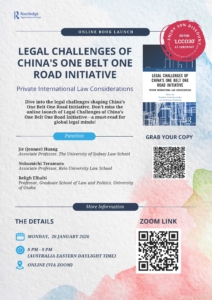Views
Tatlici v. Tatlici on Appeal: Defendant Wins as Public Policy Confronts the Financialization of Cross-Border Defamation Award
Written by Fikri Soral, Independant Lawyer, Turkey; and LL.M. student, Galatasaray University, Turkey
The Tatlici litigation continues to unfold as one of the most noteworthy examples of how national courts in Europe are responding to transnational defamation judgments obtained in the United States. The previous commentary examined Malta’s First Hall Civil Court judgment refusing to enforce the U.S. default award of US$740 million.[1] The Malta Court of Appeal’s judgment of 14 October 2025 builds upon that foundation by upholding non-enforcement while clarifying the legal reasoning behind it.[2] The Malta Court of Appeal’s judgment came as the second major development, following an earlier first-round enforcement attempt in Turkey that had already failed on venue.[3] Read more
‘Paramount clause’ in a bill of lading as choice of law under Rome I – the Supreme Court of the Netherlands in Airgas USA v Universal Africa Lines
 In Airgas USA v Universal Africa Lines (7/11/2025, ECLI:NL:HR:2025:1665), the Supreme Court of the Netherlands considered the interpretation of a so-called ‘Paramount clause’ in a bill of lading. Such clauses commonly signpost which rules govern the international carriage of goods by sea. The Court addressed such clause as a choice of law and held that article 3(1) of the Rome I Regulation does not preclude the parties from agreeing on such clause. Read more
In Airgas USA v Universal Africa Lines (7/11/2025, ECLI:NL:HR:2025:1665), the Supreme Court of the Netherlands considered the interpretation of a so-called ‘Paramount clause’ in a bill of lading. Such clauses commonly signpost which rules govern the international carriage of goods by sea. The Court addressed such clause as a choice of law and held that article 3(1) of the Rome I Regulation does not preclude the parties from agreeing on such clause. Read more
“Without Regard to Principles of Conflict of Laws”
It is common to see some variation of the phrase “without regard to conflict of laws principles” appear at the end of a choice-of-law clause. Here are some examples:
“This Agreement shall be governed by and construed in accordance with the laws of the Republic of China, without regard to its principles concerning conflicts of laws.”
“This Agreement and all acts and transactions pursuant hereto and the rights and obligations of the parties hereto shall be governed, construed and interpreted in accordance with the laws of the State of Delaware, without giving effect to principles of conflicts of law.”
“This Note is being delivered in and shall be construed in accordance with the laws of the State of New York, without regard to the conflict of laws provisions thereof.”
Although this phrase is common, its purpose and origin are poorly understood. In 2020, I published an article, A Short History of the Choice of Law Clause, that attempted to demystify these issues.
News
Online Book Launch – Legal Challenges of China’s One Belt One Road Initiative: Private International Law Considerations
Following the successful release of Legal Challenges of China’s One Belt One Road Initiative: Private International Law Considerations late last year, as previously announced on this blog, co-editors Dr Poomintr Sooksripaisarnkit (University of Tasmania) and Dr Sai Ramani Gariimella (South Asian University) are pleased to invite you to an upcoming online book launch.
This virtual event will feature insights from three distinguished contributors:
- Dr Jie (Jeanne) Huang (University of Sydney)
- Dr Nobumichi Teramura (Keio University Law School)
- Professor Beligh Elbalti (The University of Osaka)
Presentations will be followed by a moderated Q & A and discussion session.
This event is open to the public; please refer to the attached flyer to scan the QR Code for Zoom access.

Supreme Court of Canada to Hear Jurisdiction Appeal
Canada’s highest court does not grant leave to appeal in many cases involving private international law. In November 2025 it granted leave to appeal from NHK Spring Co., Ltd. v Cheung, 2024 BCCA 236, in which the British Columbia Court of Appeal agreed with the court below in holding that it had jurisdiction to hear a price fixing class action. The action is interesting because it involves what could be described as a “foreign” conspiracy that had effects within Canada.
The defendants are Japanese entities and the claim alleges that they conspired to fix the price of “suspension assemblies” which are a component of hard disk drives which are in turn a component of things like computers. The claim alleges that Canadians purchased products that contained these assemblies and because of the price fixing they paid more than they otherwise would have done.
PAX Moot – Deadline for registration is Friday 16 January 2026 at 23:59 CET
The PAX Moot 2026 Vladimir Koutikov Round is well underway. The case was published on 13 October 2025 and is available here. The deadline for registration is 16 January 2026 at 23:59 CET.
Save the date: The oral rounds will take place from 15 to 17 April 2026 in Sofia, Bulgaria.


